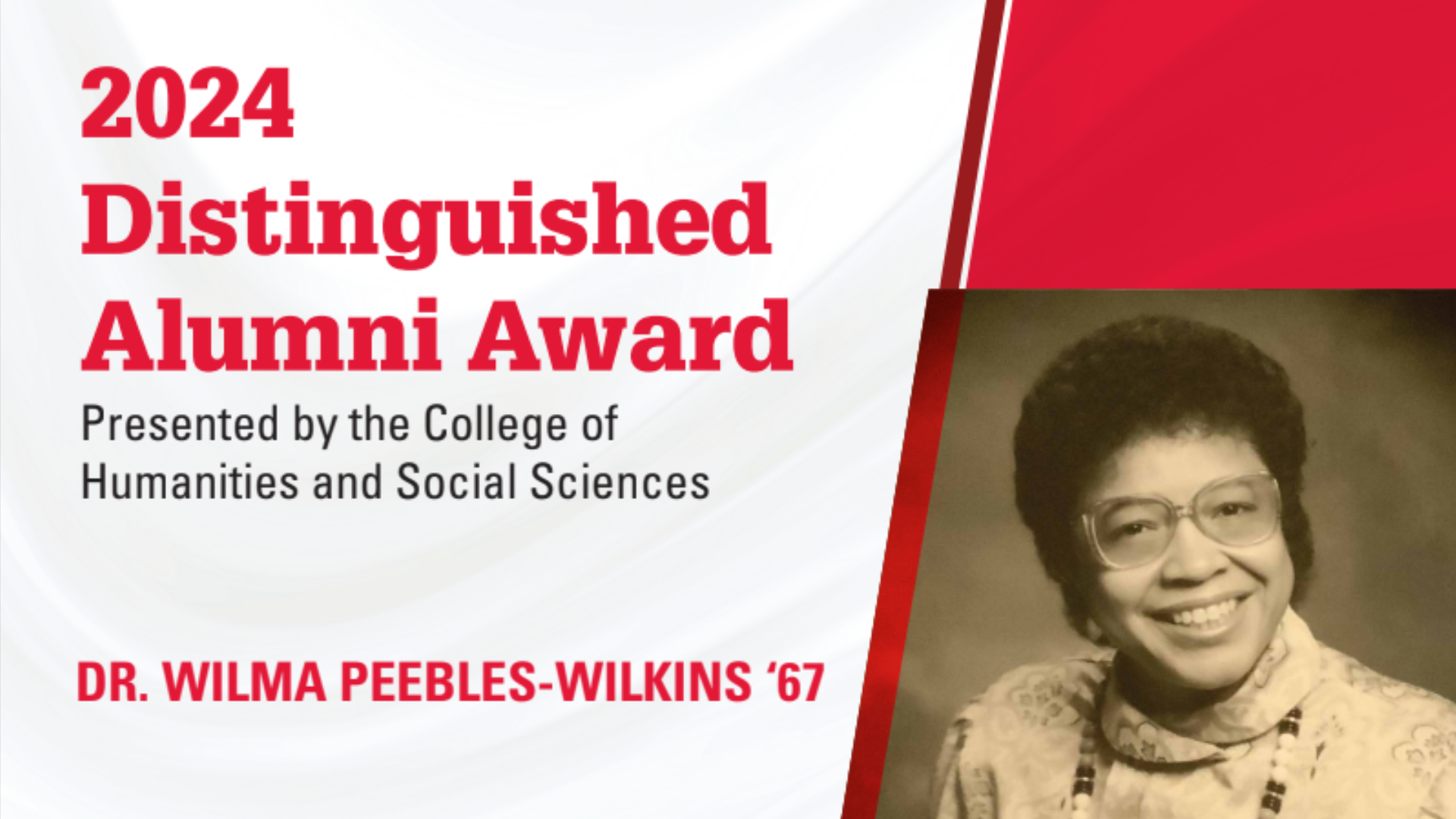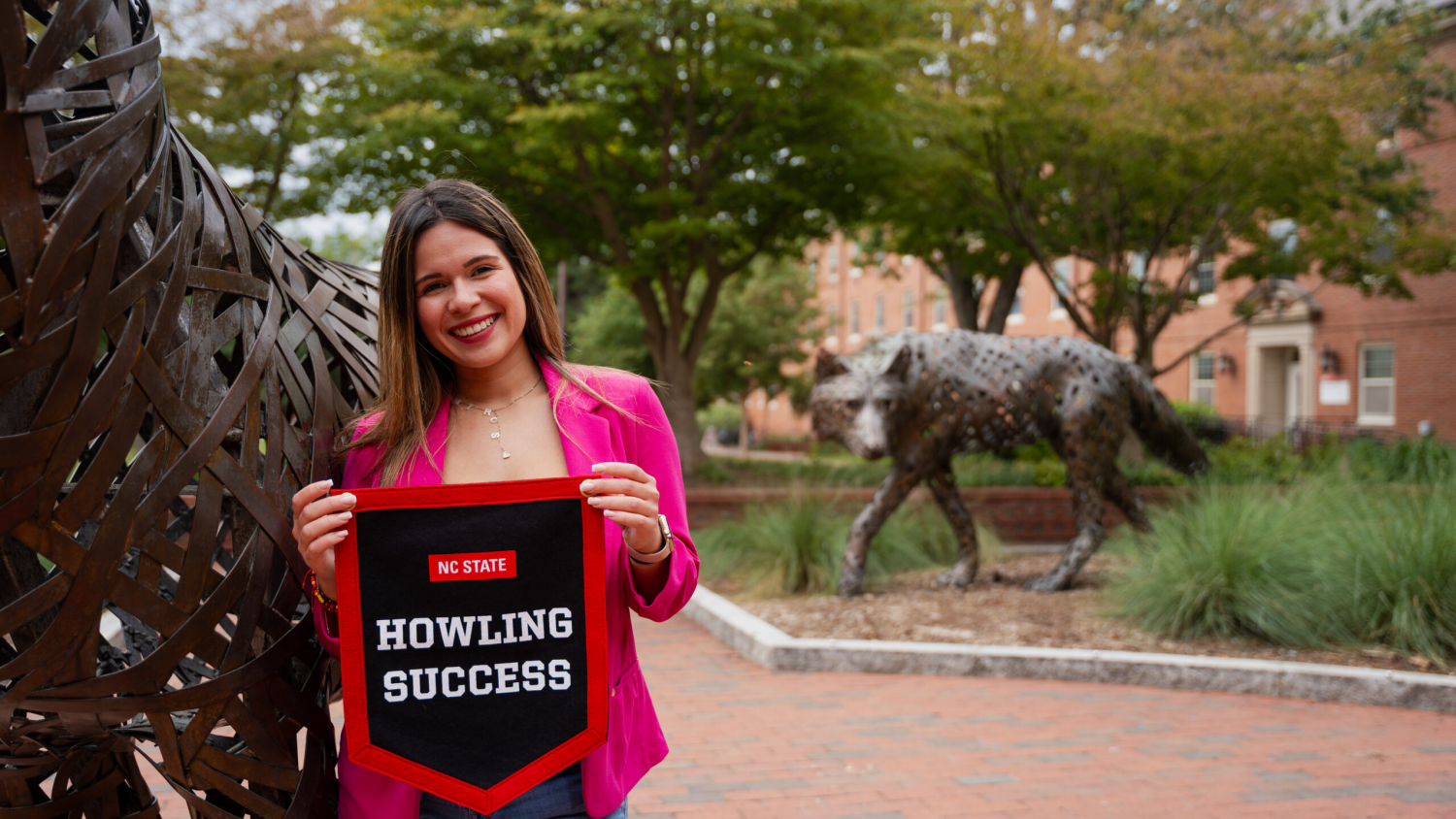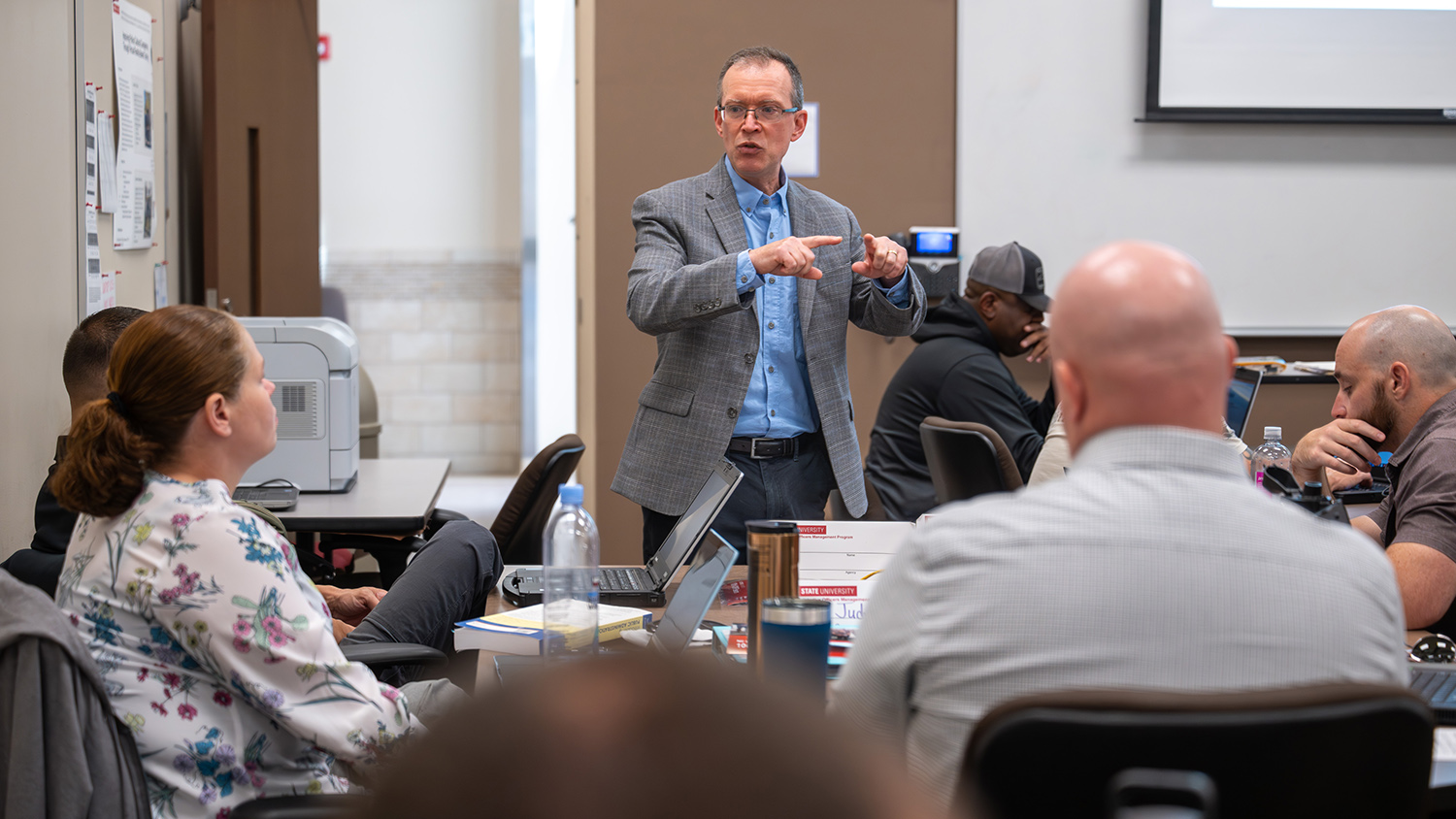Wolfpack Writers: Rupert Nacoste
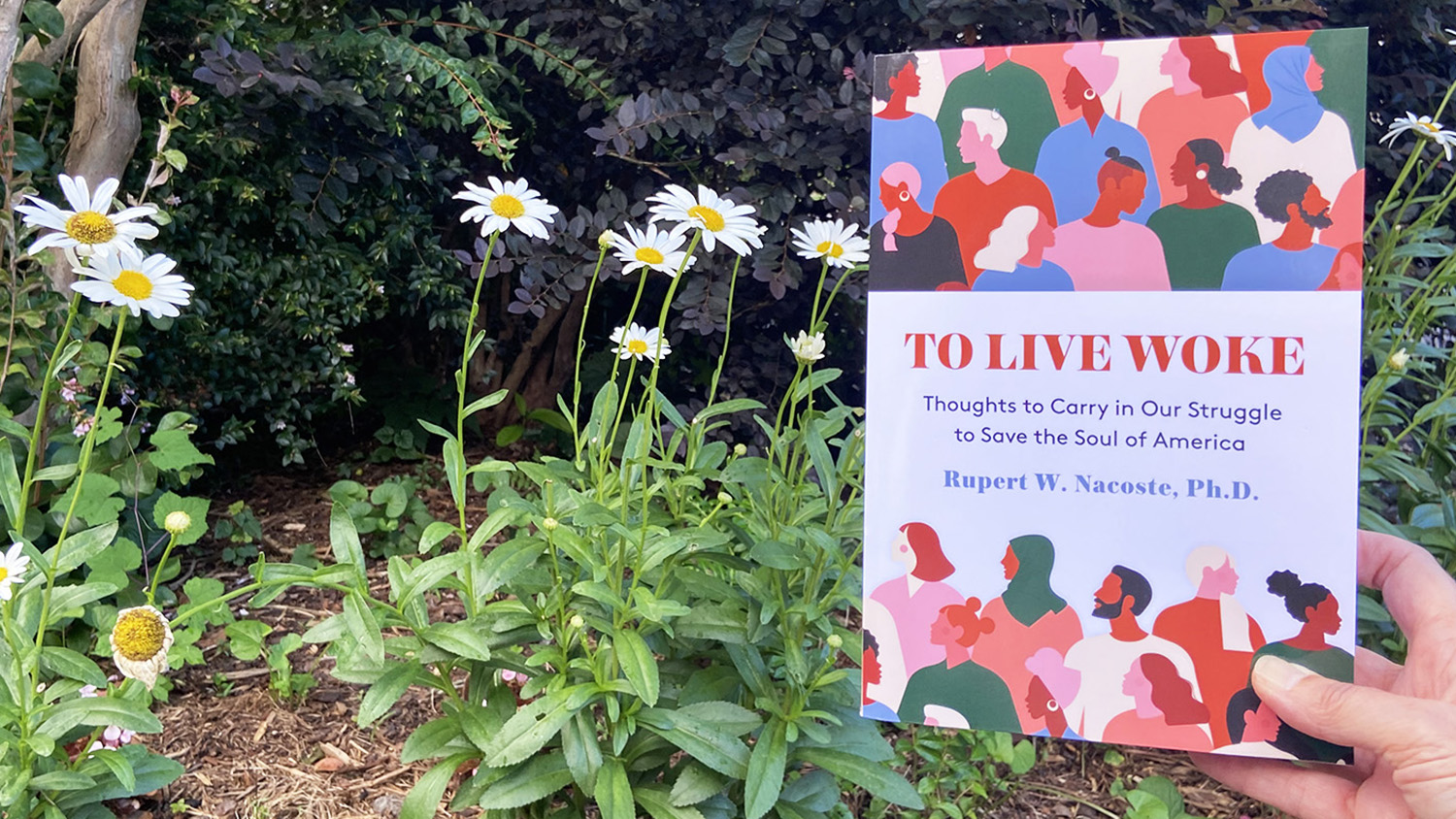
Rupert Nacoste is a professor of psychology at NC State. As a national voice in diversity awareness and understanding, he coined the term “neo-diversity” to capture all the ways in which our culture is diverse — including race, body condition, religion, sexual orientation, ethnicity, mental health condition, political affiliation and gender identity.
His book, To Live Woke: Thoughts to Carry in Our Struggle to Save the Soul of America, is a call to Americans to live in a way that embraces our nation’s neo-diversity. We caught up with Nacoste to learn more about his writing process and about what motivates him to spark change.
What motivated you to write this book?
As I say in To Live Woke, I have been concerned about the soul of America. I have been seeing, and my students have been reporting to me, too many instances of people who use anti-group (racial, gender, ethnic and religious) slurs, and call that “a joke.” Part of what I want to do with this book is alert people to the fact that we now live in a society where we all have to encounter and interact with people “not like us.” For our democracy to thrive, we all must accept that and learn to interact with people “not like us” with respect. I also want to alert the people who call themselves “woke” that you cannot be “woke” and rely on stereotypes of any group. To be woke is to be a connector — not a detractor — of communities.
To Live Woke calls on Americans to live in a way that embraces our nation’s neo-diversity. What are the first steps we can all take?
The first step is the most important: Put aside your tendency to think and interact through stereotypes. I put it this way: “Never try to interact with a person as a representative of a group.” You insult individuals by trying to understand how to interact with them through your pre-existing idea of who they are. No matter their demographic group, each person is unique.
Why is it important to have open conversations about race and social justice?
Racial and other intergroup problems in America simmer to a boil when unaddressed. We must engage in honest and difficult conversations about race and social justice to learn how to be respectful to people “not like us.” Even the U.S. Navy figured that out during the time I served. The Navy created an intervention that required all personnel to attend and participate in a two and a half day facilitated racial conversation. You see, without open conversations, we all just make assumptions. We rely on what we “heard” or what we “always thought,” and we bring that into our interactions and find our interactions crashing.
Who can help facilitate those conversations?
During the time I served in the Navy (1972-1976), I was trained as a group facilitator by the Department of Defense. Trust me when I say, good intentions are not enough. Anyone who wants to or is asked to facilitate these difficult conversations must first examine themselves. The conversation is not for the facilitator; it is for the participants. Facilitators must set their egos and feelings aside to help others have the conversation. For anyone put in that position,I always recommend the book Difficult Conversations: How to Discuss What Matters Most, by Douglas Stone, Bruce Patton and Sheila Heen.
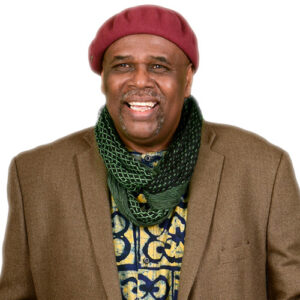
You juggle a lot. How does a professor make time to write?
I organize my days. During the semester, I reserve time in the morning for making notes for writing projects. In my calendar, I have an appointment with myself that is consistent. I also have a daily appointment with myself for teaching preparation. Doing it that way frees me up to be really present in my interactions with students during appointments with them.
How does your writing affect your work as a professor and your interactions with students?
Actually, it’s my interactions with students that affects my writing. I have a lot of technical, social psychological knowledge. Yet the social world keeps changing. From my students, I learn about those changes and how those changes affect people who aren’t professors. For example, when I teach about modern dating, I get my students talking about their dating experiences. I then apply — and teach them to apply — social psychology to their experiences. All my books are influenced by my students. In To Live Woke, there are chapters built around student experiences on campus, when students asked me to help them understand the racial (or other intergroup) dynamic. Chapter 31: “Dear White People?” is a really good example of that.
What book do you recommend people read before the age of 21?
To understand the real history of race in America, the book I use in my Interdependence and Race class, Tim Tyson’s Blood Done Sign My Name, is the one I recommend. Tyson uses the true story of a racial murder in Oxford, North Carolina, to review the whole history of the Civil Rights Movement. Every junior or senior high school student, especially in North Carolina, should read this book. When my students read it for my class, they ask, “Why weren’t we taught this in high school?”
You’re organizing a literary dinner party. Which three writers, dead or alive, do you invite?
- Ernest Gaines, author of A Lesson Before Dying.
- James Lee Burke, who writes these dark, eloquent murder mysteries set in the bayou country of Louisiana where I am from.
- Louise Penny, another mystery writer, whose stories are set in a small village in Canada.
When do you read?
During the semester, I do most of my reading on the weekends, starting on Friday morning. Each morning I read for about two hours.
When do you write?
I write every day. During the semester, I write essays for my “Psychology Today” blog. When I have enough of an idea, I set aside extra time in the morning that week, to flesh out a bit of the essay until I am satisfied. When it comes to books, I write in the summers. When I have the idea, I start making notes in a journal. When summer break comes, I set up a writing schedule. Typically, I write my books by being at my writing perch by 9:30 a.m., and I write until 1 p.m. and stop, no matter what. Beyond that, my brain starts to be less sharp, and the writing starts to get away from me.
What’s next for you?
I will retire within a year (if not sooner given COVID-19). In retirement, I have plans to write maybe one more nonfiction book and then move on to fiction. I have ideas for two science fantasy novels for which I have been making notes. I am a Black-Creole. Trust me, I am going to continue to have fun. Laissez les bontemps roulez! (Let the good times roll!)
- Categories:
